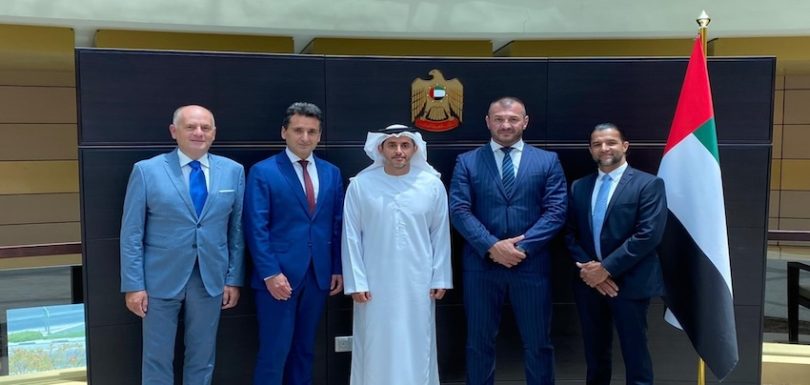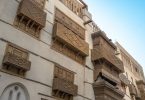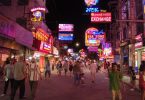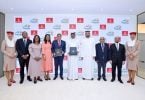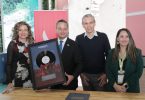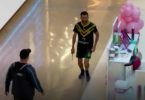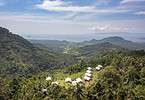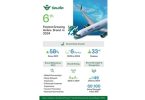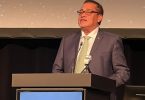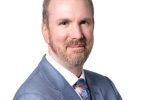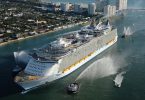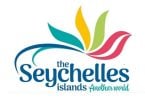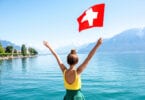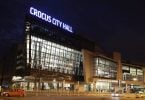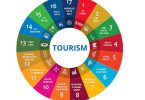Croatia is a center of excellence in promoting water area protection. The man behind this is Kristijan Curavić, a former world record holder in deep scuba diving. He is also a high-ranking former world leader, former UN diplomat, and expert in the environmental and economic sectors.
Kristijan Curavić is leading the Ocean Alliance Conservation, OACM.
History of the Ocean Alliance Conservation
Before the idea of OACM, the conglomerate was an NGO initiated back in 2007 – 2008 under the name of GUWAA – Global UnderWater Awareness Association, registered in Croatia (Mr Curavic’s country).
The official launch of the GUWAA’s first global program in the SEE region was in Monaco, after many years of organized ocean, lakes, and river cleanups. The GUWAA launched two projects:
The Speed Unit (Special Protection Ecology Environment Diving Unit) and the White Flag International. The first White Flag was an award for HSH Prince Albert ll of Monaco for his life work and achievement in the ocean conservation field.
The White Flag was awarded by Mr Kristijan Curavic personally and in the later years became a White Flag tradition – awarding heads of state, presidents, prime ministers, and members of royal families who physically contributed to the effort of preserving world waters.
Since 2013, White Flag has developed into the world’s first sustainable ocean preservation, protection, cleaning, and certification system.

In the period from 2014 to 2016, due to the growing interest by nations worldwide to protect, preserve, and physically clean the ocean of plastic, Mr Kristijan Curavic, former President of Croatia (2000 – 2010) Stjepan Mesic, and former CEO of F1 Bernie Ecclestone, along with other world leaders, decided to initiate OACM (Ocean Alliance Conservation Member) conglomerate to unite nations ready to commit more seriously towards ocean preservation.
The initiative was to be based on concrete measures and solutions with one main goal in mind – the extraction of plastic from oceans. Continuous efforts were to be made towards cleaning and certification of national coastlines to preserve those areas.
Today, OACM works mostly with governments, global corporations, and world organizations in a joint effort to create and expand CSMA (Certified SAFE Marine Areas) – to create a SAFE environment, cleaning out coastal areas for human and aquatic life. Today, OACM philosophy has become a necessity for many governments who are in the phase of integrating its system to ensure nations’ prosperity and economic growth through environmental protection and management while physically reducing the current amount of plastic in the ocean.
OACM is organizing its first world conference in Croatia, aimed at solving the immediate danger of climate change and plastic pollution in the world’s seas, rivers, and lakes.
The OACM conference
The OACM conference is scheduled from October 17-18, 2024, and will bring key leaders together to proceed with a never-before-implemented and well-thought-through approach.
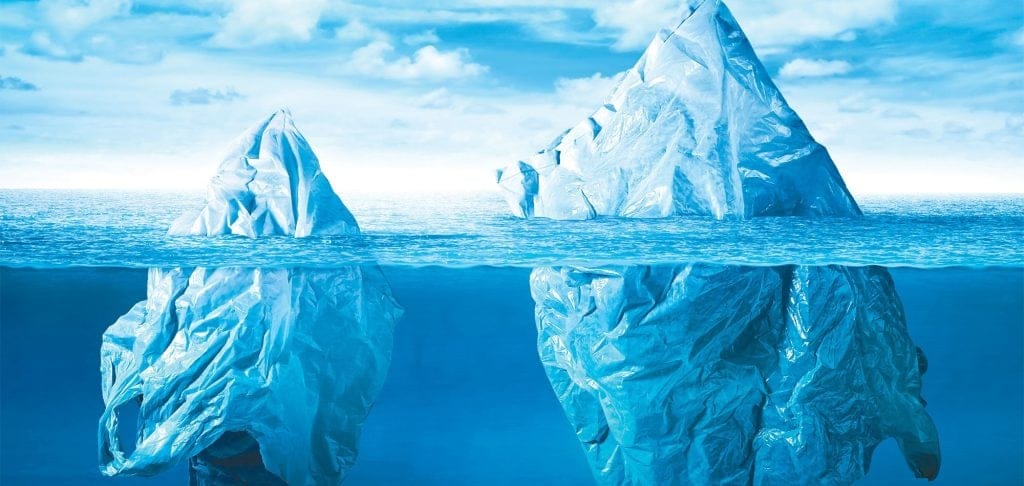
OACM solution is a long-term sustainable financial tool integrated into the corporate and state sectors.
Known as the EU ETIS & Corporate Green Practices program, OACM intends to globally integrate its SOS CP (Sustainable Oceans Solutions Conservancy Program) on several continents.
Sustainable Ocean Solutions Conservancy Program
SOS CP (Sustainable Ocean Solutions Conservancy Program) is a complete set of programs, initiatives, and reforms oriented toward global protection, preservation, physical cleaning of the ocean, and reduction of current plastic content in the waters. It includes easy adaptation in governmental and corporate sectors.
A globally integrated approach
The system is intended to become globally integrated, which will help create a universal ocean preservation system that can with time evolve even more and become even more efficient once it is in full operational use.
This unique and complex system is based on concrete measures and solutions that provide immediate tangible results as soon as they get implemented in governmental institutions.
It can be measured
These results can be measured in tonnes of extracted plastic and marine debris. At the essence of this system are its four main pillars – social, human, environmental, and financial.
All together this OACM program will provide nations with a financially sustainable system to preserve natural resources and gain economic growth through environmental protection.
Economic Growth
It is crucial to have a global impact in times such as these when humankind has already surpassed the limits of how much more the ocean can take regarding pollution and devastation.
The new modern financially sustainable systems need to provide long-term operational solutions and answers to the imminent threat we are facing today.
A real threat to the ocean and the world
If we don’t provide functional and sustainable solutions, the slow pace of current programs will endanger the ocean, and our health and welfare beyond the saving point. This is what we are faced with today.
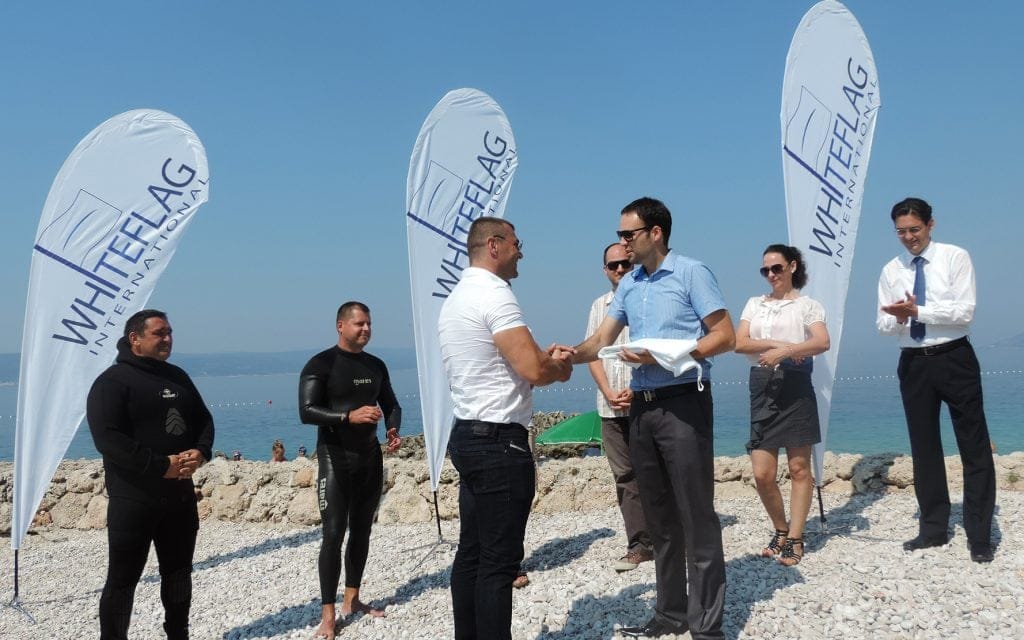
World Leaders need to recognize SOS CP to make this system work
The efficient and full global integration and the future development of SOS CP is dependent on its recognition by world leaders, heads of state, and world organizations – such as the UN – and this is a part of the OACM’s main communication plan for 2020-2022.
The only program to minimize plastic in oceans
Today, the OACM SOS CP is the world’s only program for minimizing the plastic content in the ocean – but even more unique is its ability to address the problem of plastic pollution in general.
The program deals with the current content of plastic in the ocean, which in the last two decades has been estimated to be around 196 million tonnes of plastic.
Humankind can’t ignore the current amount of plastic in the ocean and the fact that it will not dissolve within the next 500 years.
The problem needs to be addressed properly, and this is what the OACM SOS CP wants to achieve in collaboration with nations worldwide.
This system is designed to reduce plastic impact in the sea, undersea, and coastal zones.
What is OACM membership about?
OACM membership is intended for everyone who has an affinity for creation and new challenges.
Curavic says “We are still looking throughout the EU region for experts in the marketing, financial, environmental, and social sectors who want to join us and build their international careers in a new environment and build something that will remain for all of humanity and improve the lives of all beings on planet Earth.”
Extreme weather & its economic damage
Climate change has contributed to extreme weather causing at least $100 billion in damage annually. An increase in temperature will lead to accelerated economic losses.
A survey of independent economists looking at the effects of climate change found that estimates of future damages range “from 2% to 10% or even more of global GDP annually.
No tourism business is sustainable
Simply, no country or hotel chain, marina, or any institution in the world’s tourism sector can claim sustainable business as long as tourists spend their time on polluted beaches or dirty seas full of plastic and other waste.
Because such a practice threatens the national economic security of the country, especially those whose economy is dependent on tourism.
Tourism developing countries are particularly exposed to the consequences of the degradation of marine and coastal ocean ecosystems, as many of them depend on ocean-based industries such as fishing and tourism.
A Sustainable Ocean Economy
SOS CP can create a sustainable ocean economy and offer quality jobs in the environmental sector, improved food security with CSMA (certified SAFE marine area), and improved resilience – the backbone of long-term, inclusive, and sustainable development.
SOS CO contributes to the protection of the world’s oceans by minimizing current plastic waste with measurable results using the EOMD Scale System (Extracted Ocean Marine Debris).
Sustainable Development Goals
The OACM SOS CP system is aligned with more than 8 out of 17 UN Sustainable Development Goals.
The UN SDG provides guidelines that are crucial for further development but do not provide financially sustainable tools.
SOS CP adds financial tools
SOS CP is a tool for achieving these goals, and that is why OACM is entering into cooperation with six UN organizations, and subsequently more.
Currently, between the government and corporate sectors, the non-existent measures and tools to prevent this pressing problem pose a great risk to human health and increase the death of marine life, endangering biodiversity and ecological processes.
Rooted in the world tourism sector
Curavić explains: “The success of this system is the financial and marketing sustainability between the states and the corporate sector, which is deeply rooted in the world tourism sector, from where the possibility of its sustainability originates.
The provision of CSMA-certified SAFE Marine Areas (Certified Safe Marine Coastal Zone for Human and Marine Life) is the primary and most fundamental service in the tourism sector worldwide.
Last year, OACM started communication for the global implementation and integration of this program with its board of directors. Former Secretary General of the UN Tourism, formerly (UNWTO) Dr. Taleb Rifai is on this board.
Outlook for the next 10 years
In the next 10 years, the world tourism industry will direct all its policies in the state and corporate sector in the direction of setting new modern development directions, mostly in the digital transition
This will be monitored by the SOS CP CSMA system.
OACM will work with participating governments as an advisory body that will advise, and encourage the adoption of long-term financially sustainable measures to solve environmental, economic, and socially important issues.
It will significantly reduce government costs and increase efficiency in these key areas.
OACM will assist governments in achieving the UN’s 2030 Sustainable Development Guidelines, which are critical to the sustainability of the planet and natural resources.
OACM’s cooperation with the European Commission
OACM has been cooperating with the European Commission since 2017 and expects the continued approval of the SOS CP system in all EU member states.
Our goal is to reduce the impact of plastic on all water surfaces in EU member states.
The process has already started in Slovenia, Croatia, Malta, and the SEE region. It also is starting in Macedonia and Albania, which is at the very beginning of the development of the tourism industry.
Small Islands
The SIDS Small Island Development States CSMA program is to begin in June 2024.
More than 20 delegations from small island states are expected at the OACM conference so far.
Financial Solidarity Fund
OACM, after launching the program in the Middle East, will form a financial solidarity fund with its partners where small island states will be able to receive financial assistance in the integration of our SOS CP system and investments in sustainable ecological tourism.
For more information on OACM visit www.oacm.group/

